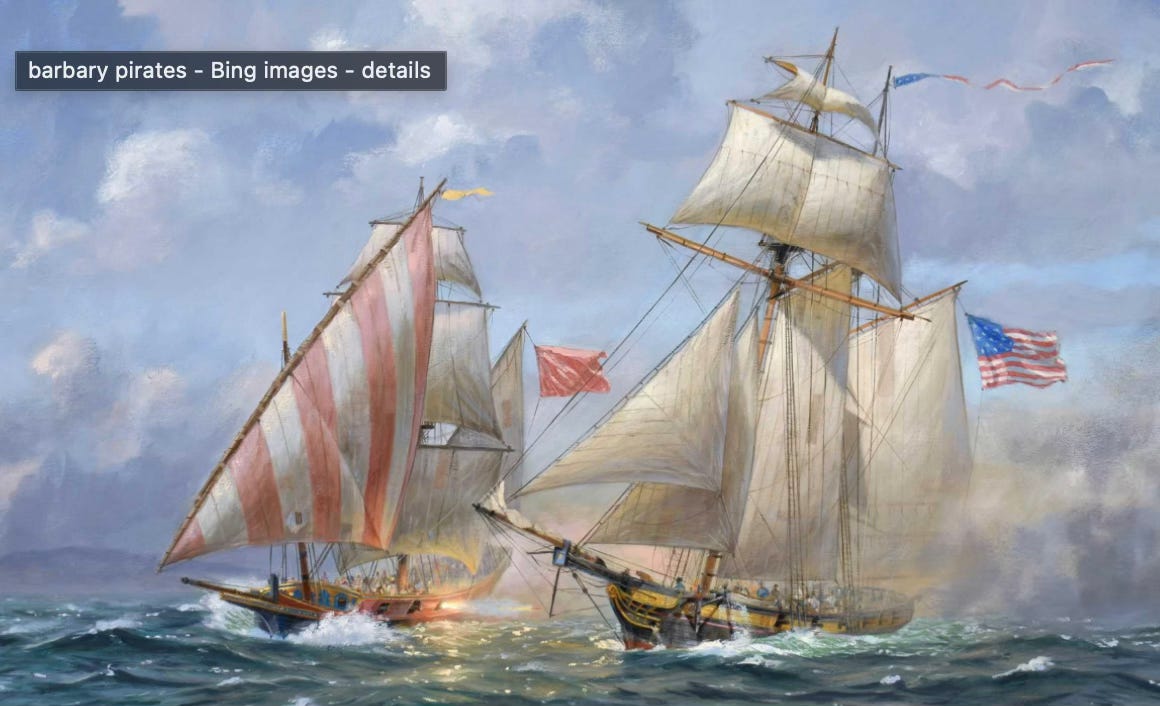
After the U.S. and Britain at last retailed yesterday against Yemen’s Houthis for their multiple attacks against shipping on the high seas, the Iran-backed rebels say they’re damn mad and won’t take it any more.
They speak of “retaliation,” “defiant responses” and being “undeterred” in launching more attacks on ships transiting the Red Sea, and against the U.S. and assorted Mideast targets. Some voices in America gravely warn of escalation. As if we started this whole thing.
We—someone—has to stand up for the principle of “freedom of the seas.” As far back as the 1600s, the principle has existed that the seas were international territory and that all nations were free to use it for trade.
It’s not just some academic theory, raised (uselessly) by twiddling thumb United Nations diplomats. Free use of the seas is essential, not just for healthy commerce, but for peace among all nations. Wars have started around the world against nations (and pirates) who violated the principle.
The War of 1812 began because Great Britain was attacking U.S. shipping and taking American sailors prisoners. America went to war against the Barbary Pirates. America and Japan in World War II battled over the control of the vital Southeast Asia shipping lanes. China today is illegally claiming control over some of those same shipping lanes in the South China Sea, a prelude to a possible invasion of Taiwan.
For centuries the most-powerful British empire was the guardian of free seas. When World War II, the job fell to the U.S., then world’s most powerful nation. It has been a recognized U.S. obligation ever since.
That is until isolation grew to become a powerful political force, fostered by Donald Trump and abetted by politicians who see no role—political, economic or moral—in U.S. involvement as “world’s cop.”
The U.S. protecting the Red Sea from the Houthis is a different issue than the backing of Israel and Ukraine in the attacks on them. Even if those two wars had never happened, the U.S. and the international community would be obliged to stop the Houthi provocations.
Will the U.S. actions provoke an escalation into a wider war? I don’t know. But it’s a risk that the free world must take. To sit back and do nothing is a guarantee of even more bold moves by control-freaks in autocratic nations. When people talk about “threats to democracy” this is one that tops the list.
Dennis Byrne is a retired Chicago journalist, author and freelance writer. Email: dennis@dennisbyrne.net
ty Australia, Bahrain, Canada and the Netherlands, targeted radar and air-defense systems as well as storage and launch sites for the Houthis’ cruise and ballistic missiles,
Yemen’s Houthi rebels responded defiantly to U.S.-led strikes against them Friday, saying that the attacks had failed to cause significant damage and that they remained undeterred from launching more attacks on U.S. and international targets in the region.
The strikes—and fresh promises of retaliation—threaten to escalate monthslong violence in the Middle East into a broader conflict and turn the Red Sea into a new flashpoint between Washington and the various Iran-backed groups arrayed across the region.
“All American and British interests have become legitimate targets for the Yemeni armed forces in response to the aggression,” said a statement from the Supreme Political Council of the Houthis, which controls the capital San’a and large swaths of territory.



